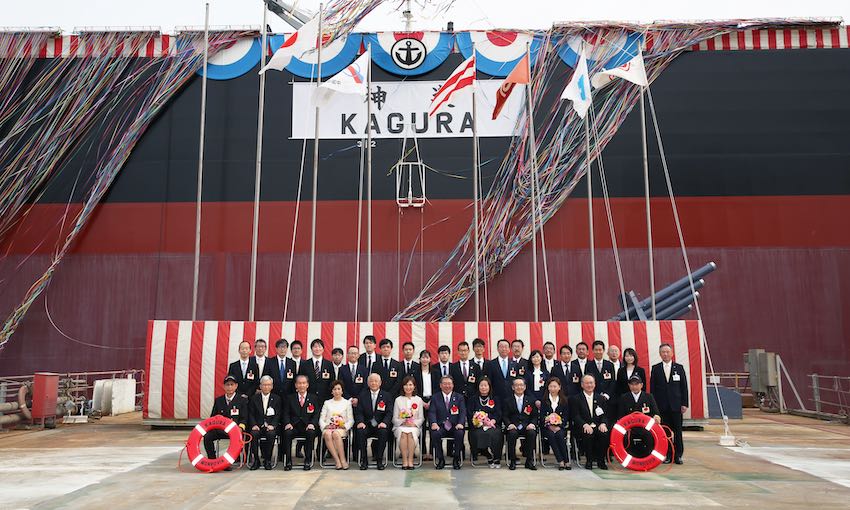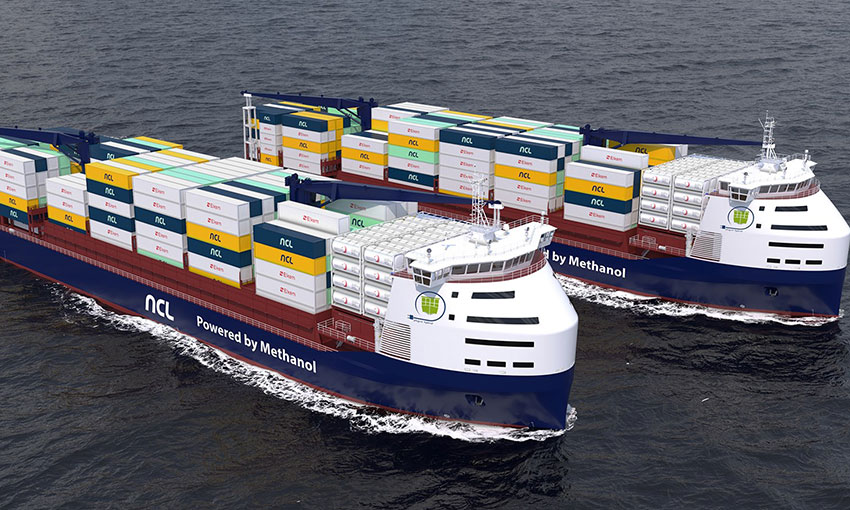THE International Chamber of Shipping (ICS) has set out a proposal for a global levy on carbon emissions from ships.
ICS presented a submission to the International Maritime Organization on Friday, calling for an internationally accepted market-based measure to accelerate the uptake and deployment of zero-carbon fuels.
The proposed levy would be based on mandatory contributions by ships trading globally, exceeding 5000 gross tonnage, for each tonne of carbon dioxide emitted. The money would go into an IMO climate fund which, as well as closing the price gap between zero-carbon and conventional fuels, would be used to deploy the bunkering infrastructure required in ports throughout the world to supply fuels such as hydrogen and ammonia, ensuring consistency in the industry’s green transition for both developed and developing economies.
In a statement, ICS said the industry is desperate to see zero-carbon ships brought to the water by shipyards by 2030. However, at current rates of production, zero-carbon fuels are not commercially available at the scale needed for the global fleet. The carbon levy is intended to expedite the creation of a market that makes zero emission shipping viable.
The IMO climate fund would calculate the climate contributions to be made by ships, collect the contributions, and give evidence they have been made.
ICS said it hopes that it would also support new bunkering infrastructure, so that new fuels, when developed, can be made available globally and from as many ports as possible. To minimise any burden on UN member states and ensure the rapid establishment of the carbon levy, the framework proposed by industry would utilise the mechanism already proposed by governments for a separate US$5 billion research and development fund to accelerate the development of zero-carbon technologies, which the IMO is scheduled to approve at a critical meeting in November immediately following COP 26.
ICS secretary general Guy Platten said shipping needs a truly global market-based measure to reduce the price gap between zero-carbon fuels and conventional fuels.
“The rapid development of such a mechanism is now a vital necessity if governments are to match actions with rhetoric and demonstrate continued leadership for the decarbonisation of shipping,” he said.
“There’s no question that improvements in technology can enable the transition to zero-emission shipping. However, huge leaps must still be taken if we’re to achieve the readiness levels needed for deployment at scale. This includes building the necessary infrastructure to support such as transition.”
Mr Platten said zero-emission ships need to be in the water by 2030 without challenging price and safety.
“If the IMO lends its backing to our proposal, then we may yet be able to change this and deploy technologies economically and equitably,” he said.
ICS said a mandatory global levy is strongly preferable over any unilateral, regional application of market-based measures to international shipping, such as that proposed by the European Commission, which wishes to extend the EU Emissions Trading System to international shipping.
“A piecemeal approach to market-based measures, (the EU ETS will only apply to about 7.5% of global shipping emissions), will ultimately fail to reduce global emissions from international shipping to the extent required by the Paris Agreement, whilst significantly complicating the conduct of maritime trade,” ICS said.
The levy-based market-based measure, which is co-sponsored by the trade association for bulk carrier operators, INTERCARGO, comes in addition to an industry and government proposed US$5 billion research and development fund. This fund, of a mandatory US$2 levy per tonne on marine fuel, would be used entirely to fund the research and development of alternative zero-carbon fuels and propulsion systems. ICS has called for this fund to be approved at an upcoming pivotal meeting of the IMO in November this year.
Mr Platten said the World Bank and numerous studies have concluded that the most appropriate global market-based measure for reducing carbon emissions from shipping is a levy-based system.
“Adopting our proposal for a levy-based system, will avoid the volatility that exists under emissions trading systems, such as the EU ETS – which in the case of shipping, seem to be more about generating revenue for governments from non-EU shipping, than helping shipping to decarbonise,” he said.
“A levy-based system can give the industry price certainty, and more stability for making investment decisions in zero –carbon ships and developing emissions saving technology.”




